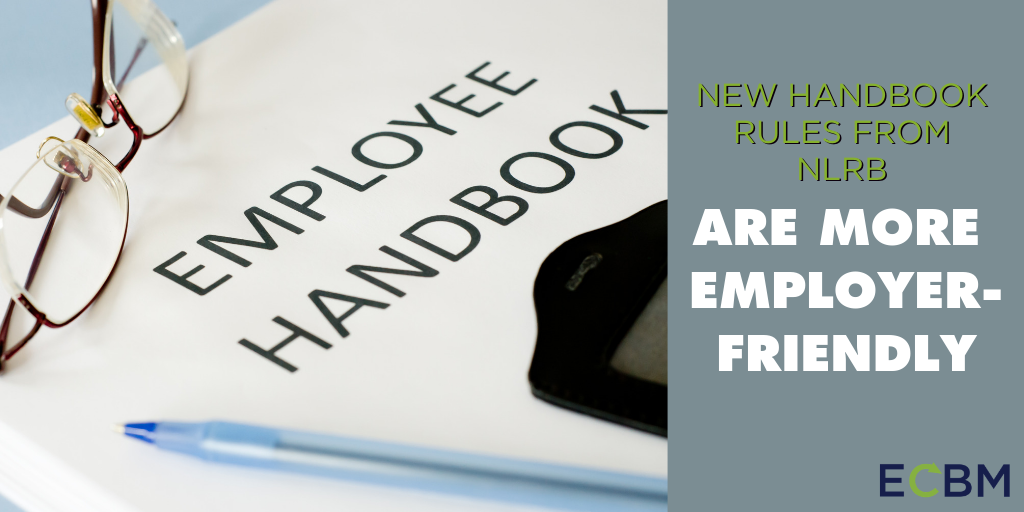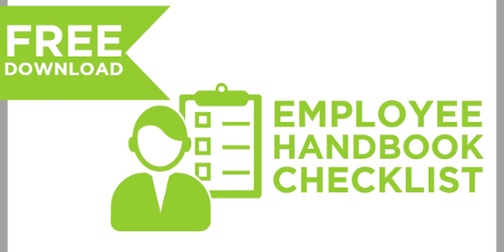
As part of a widespread regulatory overhaul, the National Labor Relations Board recently issued new guidance on employee handbooks. The new handbook rules are considerably friendlier to employers than the old rules, and the NLRB has tried to provide employers with clear examples of how to remain in compliance with the new guidelines. The guidance results from a case decided by the NLRB in December 2017, The Boeing Company, which overturned a previous Bush II era case that imposed much stricter guidelines for acceptability when reviewing provisions of employee handbooks.
Legality Of Rules That Restrict Unionization Activities
The prior case, Lutheran Heritage, created two different standards for reviewing the legality of employee handbook policies. First, it considered any rule that explicitly restricted employee attempts to organize or unionize per se unlawful. If the rule did not explicitly restrict unionization activities, Lutheran Heritage set out three prongs under which the rule could still be unlawful: if the rule could be “reasonably construed” as restricting unionization activities, if the rule was enacted in response to unionization activities, or if the employer had applied the rule in such a way as to restrict unionization activities.
The “reasonably construe” prong of Lutheran Heritage had created a ton of litigation on the issue of what type of rules could be reasonably construed as restricting union activity. Codes of civility and rules regarding employee body language had been found unlawful under this prong. Rules regarding criticism of superiors or fellow employees or against talking about company business outside of work had also been found unlawful.
Company Policies That Restrict Possessing Cameras
In The Boeing Company, the NLRB eliminated the “reasonably construe” prong of Lutheran Heritage. Boeing involved a company policy against employees using or possessing cameras while at work. (Given that Boeing occasionally does classified work for the US government, many people would probably find that restriction reasonable.) The NLRB chose the case to set forth a new three category approach to employee handbook rules.
Category One involves rules that do not impact unionization activities and rules that may impact unionization activities but the benefit to the employer of the rule still justifies the rule being considered lawful.
Category Two involves rules that require individual scrutiny from the board to determine the legitimate justifications of the rule and its tendency to impact unionization activities.
Category Three involves unlawful rules that unjustifiably prohibit or restrict unionization.
Lack Of Clarity From The NLRB
The new standards will require heavy factual analysis when litigated, meaning there is potential for an ongoing lack of clarity or predictability with the NLRB’s new standards. To that end, the Board has published a Handbook on Handbooks with example of acceptable rules versus unacceptable rules. This marks a good opportunity for companies to review their employee handbooks and ensure they are up to date and in compliance with the applicable rules.



